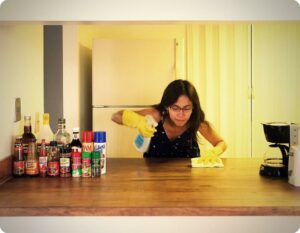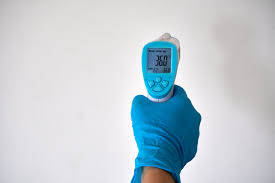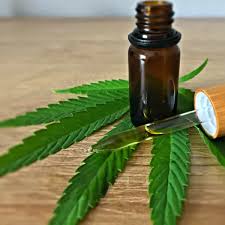Contamination OCD is one of the most common forms of obsessive-compulsive disorder (OCD). People with this condition have a persistent and irrational fear of contamination from germs, dirt, or other substances. They may obsessively wash their hands and engage in other compulsive behaviors to try to prevent the spread of germs. In some cases, individuals may not be able to touch certain objects or surfaces without feeling as though they are contaminated. This can have a significant impact on daily life, as it often causes people to avoid activities or situations that involve potential contact with germs or other contaminants.
Contents
Symptoms Of Contamination OCD

Here are some intrusive feelings, thoughts, and behaviors associated with OCD of Contamination:
- Getting a strong feeling that everything is contaminated in the surrounding.
- Obsessive fear of getting sick when someone coughed or sneeze around the person.
- Difficulty leaving the house due to fear of contamination.
- Distress when someone enters the house without following hygiene rituals
- Checking surfaces for contamination multiple times a day and Refuse to touch objects with bare hands
- Spending an excessive amount of time in the bathroom to clean oneself. Seeking reassurance from family and friends that one is not contaminated.
- Excessive worry about the health and safety of oneself or others. Developing depression, anxiety, or other mental health issues as a result of contamination fears.
Factors That Cause The Contamination OCD?
Some of the causes that lead to this condition of OCD of contamination are:
- Traumatic Experiences: A person may develop contamination OCD after a traumatic experience related to contamination, such as an illness or injury that was contracted due to contact with a contaminated object.
- Stress and Anxiety: Stressful situations can be triggers for the intrusive thoughts and behaviors associated with contamination OCD.
- Genetics: Studies suggest that there is a genetic component to OCD, and contamination OCD is no exception. Individuals with family members who have OCD may be at higher risk for developing contamination OCD.
- Strep Infection: A bacterial infection known as “strep throat” has been linked to the development of OCD symptoms, including OCD of contamination.
Obsession Under Contamination OCD Condition

Here are some most common examples of compulsions and obsessions that people with OCD of Contamination may experience:
- Fear of contamination from germs, disease, or bodily fluids.
- Fear of catching an illness from touching objects or surfaces.
- Anxiety about becoming “contaminated” by daily activities such as eating or using the restroom.
- Excessive concern for cleanliness and order in the home or workspace.
- Think about taking a bath after socializing or having contact with strangers. Checking clothing or skin for signs of contamination. Performing rituals such as excessive handwashing to reduce fear of contamination.
- Developing an irrational fear of certain foods, drinks, or other items due to their perceived potential for contamination.
Compulsion In Contamination OCD
Compulsion is the activity that a person performs in response to intrusive and obsessive thoughts. Some of them are:
- Engaging in compulsive hand-washing and cleaning patterns to avoid contamination.
- Checking door knobs, phones, keyboards, or other objects for signs of contamination before touching them.
- Repeatedly changing clothes to prevent “contamination” from the previous outfit. Fear of public restrooms and other places perceived to be “dirty” or “contaminated.” Obsessively checking items for signs of contamination before purchasing them. Seeking constant reassurance from family and friends that one is not contaminated. Developing anxiety, depression, or other mental health issues as a result of contamination fears.
- Excessive laundry and house cleaning to prevent contamination. Avoidance of unfamiliar objects, surfaces, or situations due to fear of contamination.
How To Treat Contaminated OCD?

Any type of OCD is not curable however, the condition can be controlled in the following ways:
Psychotherapy
- Cognitive Behavioral Therapy (CBT): CBT is an effective treatment for contamination OCD, as it helps to identify and challenge unhelpful thoughts and behaviors. Mindfulness-Based Cognitive-Behavioral Therapy is a subtype of therapy that focuses on developing awareness of one’s thoughts and feelings in order to manage them more effectively.
- Exposure and Response Prevention (ERP): ERP is a type of CBT that involves gradually exposing oneself to the feared object or situation while resisting the compulsive urge to perform a ritual.
- Group Therapy: Group therapy can be helpful for those with contamination OCD, as it allows individuals to connect with others who understand their struggles.
- Self-Help Strategies: There are many self-help strategies that may be used to help manage contamination OCD, such as relaxation techniques, journaling, and exercise.
Medication
Medications, such as antidepressants and antipsychotics, may be used to help manage the symptoms of OCD. Although contaminated OCD is a difficult condition to live with, it can be managed with the right treatment plan. With professional help and self-care strategies, those affected by contamination OCD can learn to control their fears and lead a more balanced life.
Exercises
Exercise is an important part of managing contamination OCD, as physical activity can help reduce stress and anxiety. Mindful activities, such as yoga or meditation, are also beneficial for those with this condition. All of these allow individuals to focus on the present moment rather than worrying about intrusive thoughts. Finally, engaging in positive self-talk and relaxation techniques can help to reduce anxiety and prevent compulsions from taking over.
Overall, contaminated OCD is a very real condition that requires professional help in order to overcome. With the right treatment plan, exercises, and self-care strategies, individuals can gain control of their symptoms and lead happier and healthier lives.
Conclusion
Contamination OCD is a real disorder that can be managed with the help of professional treatment and self-care strategies. With the right support, individuals affected by this condition can gain control over their symptoms and lead a more balanced life.
It’s important to remember that no one should have to suffer in silence. There are effective treatments and support systems available to help manage and overcome OCD of contamination.
Take care, and don’t forget that you are not alone! OCD is a mental health disorder characterized by obsessions and compulsions. If you have any queries regarding OCD treatment, ERP therapy experienced therapists at OCDMantra can help: Book a trial OCD therapy session


